Why Menopause Disrupts Sleep: A Deep Dive Into Nighttime Blues
How Sleep Changes During Menopause
Menopause, in simple terms, marks the end of a woman’s menstrual cycle. But beneath this basic concept lies a rollercoaster of hormonal changes accompanied by a wide range of symptoms.
The average age of menopause is between 50 and 51, but the first signs can appear as early as your 30s.
Every woman’s experience with menopause is unique. While some may go through it with little disruption, others may find it more challenging.
Throughout my years as an OB-GYN, I’ve accompanied countless women through this life stage. Each journey is different, but one thing most women have in common is sleep disruption.
One of my patients summed it up perfectly. She said she spent her nights like a “jumping Mexican bean” because of hot flashes. She struggled to fall asleep and stay asleep. Her anxiety sometimes woke her up feeling like “a black dog was sitting on her chest.” Even on nights when she slept longer, she still woke up tired.
If you or someone you know has experienced anything like this, you understand how serious it can be.
It’s not just about counting sheep. It’s about the domino effect sleep disruption has on mood, health, and productivity.
But before jumping into solutions, let’s understand why menopause impacts sleep. Understanding is the first step toward healing.
Why Is Getting Enough Sleep Important?
“A good laugh and a long sleep are the two best cures for anything.” – Irish proverb.
How many times have you sacrificed sleep only to feel sluggish the next day?
It’s a familiar story: low energy, endless cravings, and a wobbly commitment to staying active. Yet sleep is far more than just downtime. It’s a foundational pillar of overall health.
In my clinical practice, sleep is at the center of most consultations. And here’s why:
1. Cognitive well-being
Good sleep is critical for optimal brain function. It sharpens memory and boosts problem-solving skills. Sleep deprivation, on the other hand, clouds focus, attention, and concentration — even fine motor skills are impacted.
Poor attention also raises the risk of accidents, whether on the road or during routine tasks.
And long-term sleep loss is a known risk factor for Alzheimer’s and dementia.
2. Immunity support
Consistent sleep ensures a strong immune response. It’s no coincidence that colds strike harder after a few sleepless nights. Even fewer than seven hours of sleep can compromise immunity.
A well-rested body is more equipped to fight viruses and other threats.
3. Hormonal balance
Sleep regulates appetite by influencing hormones like ghrelin, the hunger signal. Poor sleep increases cravings, particularly at night. It also improves insulin sensitivity and stabilizes blood sugar, helping prevent diabetes.
4. Heart health
Your heart and blood vessels undergo repair while you sleep. Interruptions in this process contribute to long-term cardiovascular issues like hypertension, heart disease, and diabetes.
Did you know that losing just one hour of sleep when the clocks spring forward increases heart attack rates by 24% the next day?
Heart disease is the leading cause of death for both men and women, so sleep is not optional — it’s essential.
5. Mood and stress regulation
Brain activity during sleep helps stabilize mood and consolidate memories. No surprise, then, that brain fog and mood swings are common menopausal complaints.
Poor sleep also raises cortisol (the stress hormone), making us more irritable and prone to illness.
6. Libido
It’s not just hormones that affect our intimacy. Sleep deprivation is a known risk factor for sexual dysfunction.
One study found that longer sleep duration improved next-day sexual desire and arousal in women — each additional hour of sleep increased the likelihood of intimacy by 14%.
Tiredness is one of the most common reasons women report not being “in the mood.”
7. Longevity
A systematic review and meta-analysis found that both short and long sleep durations were associated with various health issues and higher risk of death.
Other factors surely play a role, but quality sleep is about more than just feeling rested — it’s about clear thinking, long-term health, and joyful relationships.
What Does Good Sleep Look Like?
For many women — especially those between ages 26 and 64 — the National Sleep Foundation recommends 7 to 9 hours of sleep per night.
But sleep isn’t one-size-fits-all.
Genetics, daily routines, personal health, and age all shape our sleep needs. And while duration is essential, the quality of sleep — its depth and consistency — plays an equally crucial role.
According to the CDC, nearly half of postmenopausal women sleep less than seven hours a night. That’s alarming.
I often hear patients say they’re fine on 5 or 6 hours of sleep. But it’s like getting used to carrying a heavy backpack — you may feel adjusted, but the strain is still damaging your body.
The key is finding your sweet spot within that 7–9 hour range, tailored to your individual needs. While aging does affect sleep patterns, it should not define your sleep quality.
How Does Menopause Affect Sleep?
So what exactly happens to our sleep during menopause?
Several factors are at play — from the hormonal rollercoaster to often-overlooked changes in circadian rhythm, mood shifts, underlying health conditions, and daily lifestyle choices.
1. Hormonal changes
When it comes to menopause-related sleep problems, hormones are key.
As Dr. Christiane Northrup puts it: “Hormones are like a symphony; everything needs to be in balance for the music to sound right.”
Both estrogen and progesterone — hormones that support sleep — decline during menopause.
Progesterone is a natural sleep aid, and lower levels make it harder to fall and stay asleep. It also supports breathing, so a drop can worsen issues like sleep apnea.
Estrogen, on the other hand, helps maintain sleep architecture. Low levels can lead to frequent night wakings, and interfere with body temperature regulation, which is key for restful sleep. Estrogen also helps manage serotonin, the mood-regulating neurotransmitter.
When estrogen declines, hot flashes, heat sensitivity, insomnia, mood swings, and even vivid dreams may become more common.
2. Mood changes
Mood swings, anxiety, and even depression can accompany menopause. These emotional shifts can make it harder to relax and drift off — and poor sleep only worsens the emotional toll, creating a vicious cycle.
3. Circadian rhythm shifts
As we age, our internal clock tends to shift. You may find yourself getting sleepy earlier or waking up at the crack of dawn. This can conflict with your usual routine and disrupt sleep.
Add to this the natural age-related decline in melatonin, and sleep disturbances become even more likely.
4. Underlying health conditions
Chronic conditions can worsen with age or appear for the first time. Many of the medications used to treat them also impact sleep — either directly or indirectly.
5. Lifestyle and habits
Alcohol, caffeine, and other lifestyle choices can all influence sleep quality. Even a relaxing glass of wine in the evening can disrupt deep sleep stages. And emotional changes — like children leaving home or caregiving responsibilities — can add stress that lingers into the night.
Common Sleep Challenges During Menopause
As you can see, for many women, the menopausal transition is far from peaceful at night.
The five most common sleep disruptions during menopause are:
1. Sleep disruption due to physical symptoms
A study in the American Journal of Epidemiology estimates that about 80% of women experience hot flashes and night sweats. These cause sudden awakenings, often drenched in sweat.
Declining estrogen can also lead to vaginal and bladder dryness or irritation, resulting in frequent nighttime trips to the bathroom.
To make matters worse, joint and muscle aches — common in menopause — can interrupt sleep as well.
2. Trouble falling asleep
What used to be a seamless transition into sleep can become a nightly struggle. This is largely due to declining levels of melatonin and progesterone — both essential for initiating sleep.
3. Staying asleep becomes a challenge
For some, the issue isn’t falling asleep, but staying asleep. Repeated awakenings fragment sleep, leaving it unrefreshing. These are often caused by low estrogen and increased stress or anxiety.
4. Sleep apnea
While menopause doesn’t directly cause sleep apnea, it can worsen its symptoms. Obstructive sleep apnea can look different in women, making it harder to diagnose.
Instead of loud snoring, women may experience frequent awakenings, daytime fatigue, or mood disturbances. That’s why many don’t seek evaluation, and why doctors often miss it.
Sleep apnea isn’t just about interrupted rest — it increases the risk of cardiovascular disease, type 2 diabetes, and even cancer.
5. Chronic insomnia
Occasional sleep trouble is expected, but chronic insomnia stands out for its intensity and persistence.
It’s defined as ongoing sleep difficulty lasting more than three months and occurring several times a week. In fact, insomnia leading to depression is a common domino effect seen in medical literature.
True insomnia requires proper evaluation and treatment. Left unaddressed, it can contribute to serious mental and physical health issues.
Sleep Is Complicated — But Not Impossible
Sleep isn’t just about closing your eyes. It’s a complex, essential process that deeply affects our well-being.
Understanding how menopause disrupts sleep gives us a sense of control. It’s like finding the remote again when life’s TV seems to be playing on its own.
Remember the woman I mentioned earlier? After our consultation, she came back four months later and said she was sleeping through the night and feeling amazing.
That’s the power of knowledge. Once you understand what’s happening, it becomes much easier to make changes and reclaim your nights.
Stick around for Part Two of this article, where I’ll walk you through practical tools and strategies I often recommend to my patients. Together, we’ll learn how to silence the “black dog” of sleepless nights.
With the right tools and insights, calm nights are within reach — no matter your age.
Get ready to go from knowing to doing. Sleep may be complex, but as renowned sleep scientist Dr. Matthew Walker says, it’s “the best health insurance you can have.”



